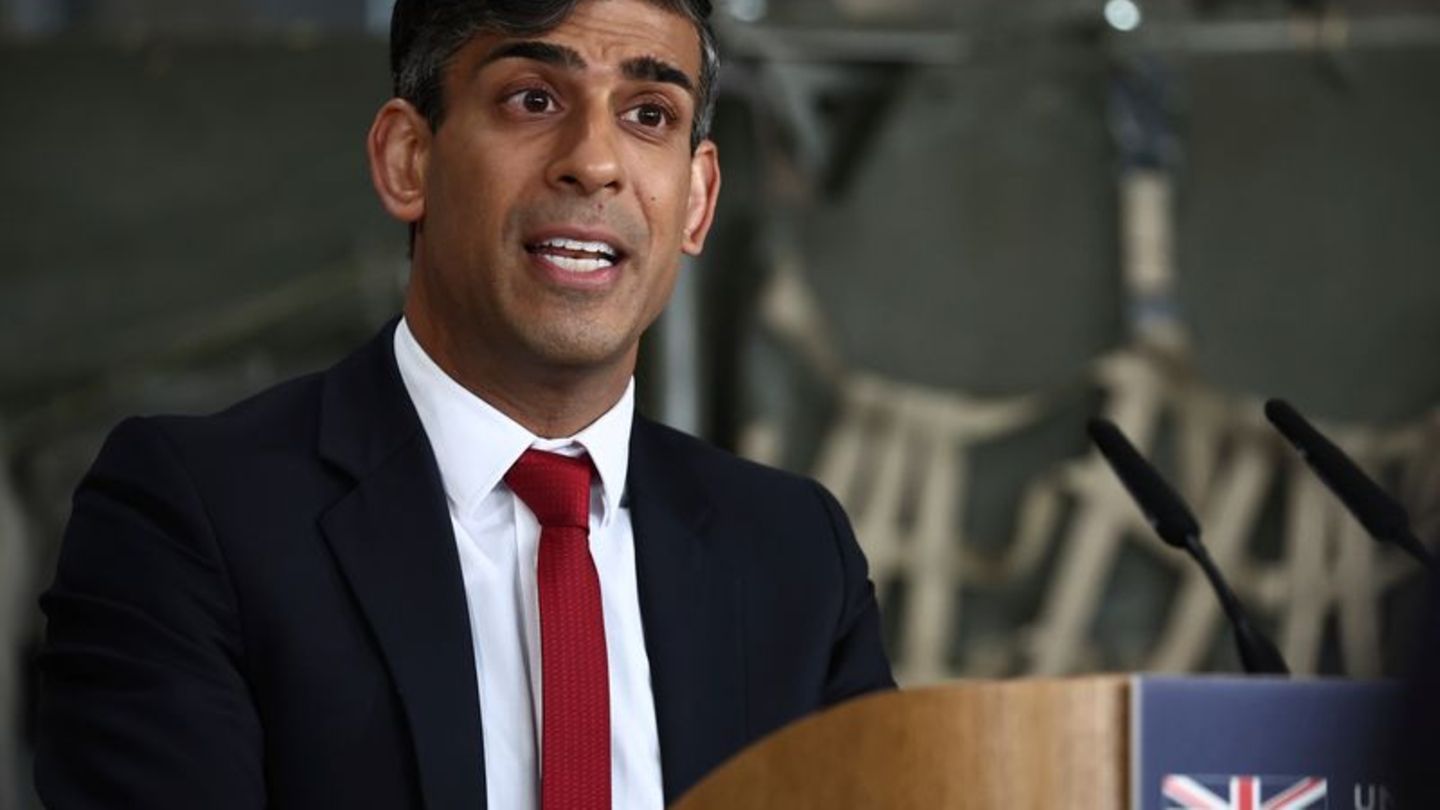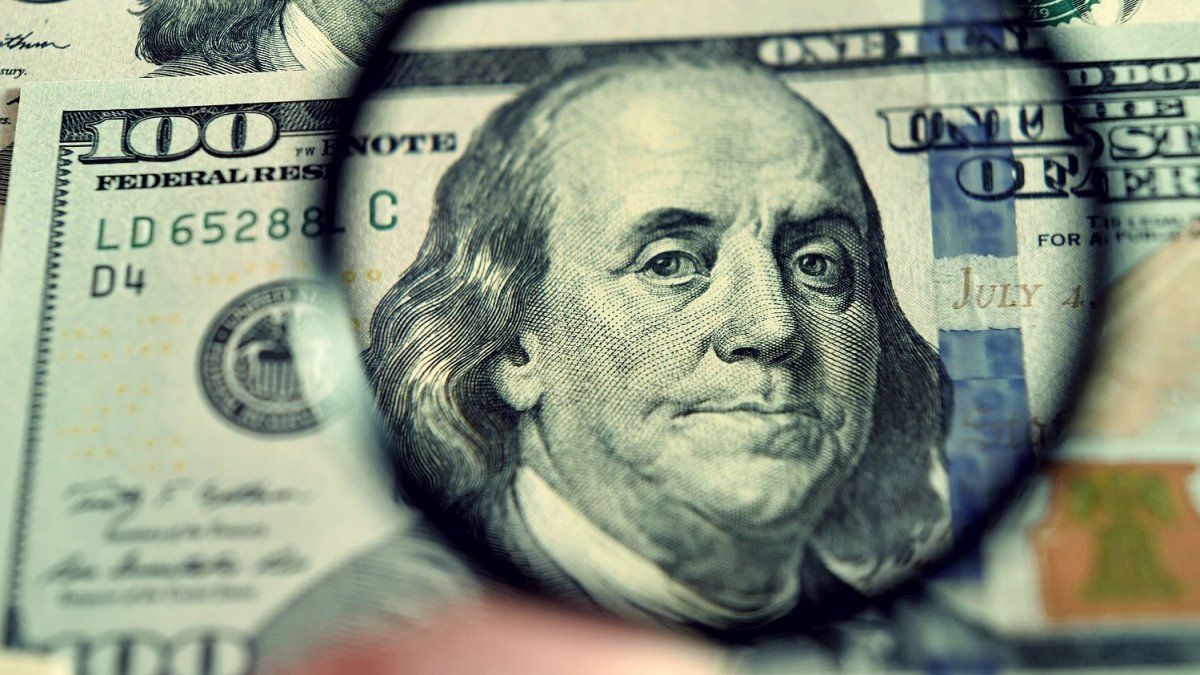The British Prime Minister took so much time with his inaugural visit to Berlin that hardly anyone expected him. The list of topics is now even longer.
Actually, hardly anyone expected that Rishi Sunak would make his inaugural visit to Berlin. In view of Sunak’s conservatives’ low polls, many political observers in London joked behind closed doors that the British Prime Minister would no longer be in office for long anyway, so the trip to see Chancellor Olaf Scholz (SPD) was no longer worth it.
Now Sunak is coming to Berlin after all – almost exactly a year and a half to the day after taking office. After a visit to Warsaw, he will be received with military honors by Scholz today in front of the Chancellery.
Sunak comes to Berlin with the wind at his back thanks to the asylum decision
Sunak’s Tory party is tumbling towards a historic defeat in the upcoming general election, which is scheduled to take place before the end of the year. But a certain tailwind is now carrying him to Berlin.
At the beginning of the week, after a long dispute, Parliament approved Sunak’s controversial asylum pact with Rwanda: Asylum seekers who arrive in Great Britain without valid documents should in future be immediately deported to the East African country. They can apply for asylum there, but they are no longer allowed to go to Great Britain – regardless of their origin.
The international criticism is huge, but Sunak is not fighting it. He insists that the elected government decides who is allowed into the country, rather than a “foreign court” like the European Court of Human Rights.
The British plans are also being followed with interest in Germany. The Union has long been pushing for asylum procedures to be relocated to countries outside the EU. The federal government has promised the states an examination. The first results should be presented by the next Prime Minister’s Conference on June 20th.
Main topic Ukraine aid: End of the US blockade provides a boost
However, another topic is likely to be at the top of the official agenda at the German-British summit in Berlin: military aid for Ukraine, which was attacked by Russia, and which is now getting a new boost with the end of the months-long blockade of US support. This will free up 61 billion US dollars (57 billion euros) for Kiev. The United States may soon deliver ATACMS missiles with a range of 300 kilometers that can target Russian supply lines far behind the front.
Sunak, for his part, has just pledged the UK’s largest-ever military package for Ukraine. In addition to 60 combat boats and hundreds of armored vehicles, it also includes other Storm Shadow cruise missiles. The promises of American and British long-range missiles could also reignite the debate over the delivery of Germany’s Taurus cruise missiles. Security expert Maximilian Terhalle from the London School of Economics assumes that this will be a topic when Scholz and Sunak talk. “As Britain delivers its Storm Shadows again, the question of Taurus will also arise again,” he says.
Taurus ring swap with Great Britain appears to be off the table
However, it is unlikely that Scholz will be dissuaded from saying no to Taurus. A ring swap with Great Britain, which has been discussed in the meantime, in which the British would receive Taurus missiles in order to be able to deliver even more Storm Shadows to Ukraine, is now considered impractical in Berlin. Instead, Scholz is currently concerned with organizing the delivery of seven additional air defense systems for Ukraine in the EU. Germany has set a good example and has relaxed another patriot system.
In any case, Scholz now sees himself as by far the most important European arms supplier to Ukraine – well ahead of Great Britain. Before his visit to Berlin, however, Sunak pushed ahead with spending on his own military and announced an increase to 2.5 percent of gross domestic product – 0.5 percentage points more than the current NATO target of 2.0 percent that Germany has set in this year year reached again for the first time in decades.
The Gaza war and Brexit are also on the agenda
Another topic in the Chancellery is likely to be the Gaza war. The federal government and Downing Street have recently gradually increased their criticism of Israel’s military actions in the Gaza Strip. Both countries are dropping humanitarian goods over the contested coastal strip. In contrast to Germany, Great Britain recently also took part in repelling the Iranian attack on Israel.
Last but not least, Scholz and Sunak will talk about the relations between the two countries after Brexit. Bilateral trade has recovered and Great Britain has returned to the top ten of Germany’s foreign trade partners. But German companies are still complaining about problems. There are problems elsewhere too. Sunak recently brusquely rejected an EU offer to talk about a mobility program for young people after Brexit, to the delight of conservative hardliners. So there is plenty of need for discussion there too.
Source: Stern
I have been working in the news industry for over 6 years, first as a reporter and now as an editor. I have covered politics extensively, and my work has appeared in major newspapers and online news outlets around the world. In addition to my writing, I also contribute regularly to 24 Hours World.




